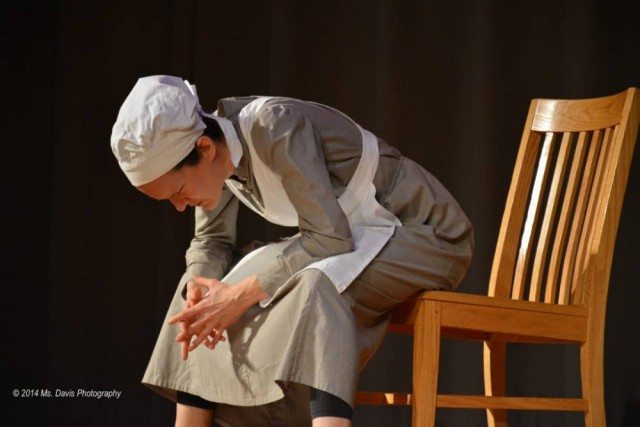
 The song “Magdalene Laundries” by Joni Mitchell tells the tale of an unmarried twenty-seven-year-old woman forced to work behind the walls of a convent as punishment for the way men look at her. The nameless woman bears witness to the stories of the other girls and women she works alongside and the hell they must endure after being cast from society for sins that range from poverty to prostitution. The song inspired actress Erin Layton to learn about the little known, centuries-long plight of women across Ireland, who were rejected from society and essentially enslaved under the rule of nuns. Her research led her to write the Edinburgh Fringe Festival hit play Magdalen.
The song “Magdalene Laundries” by Joni Mitchell tells the tale of an unmarried twenty-seven-year-old woman forced to work behind the walls of a convent as punishment for the way men look at her. The nameless woman bears witness to the stories of the other girls and women she works alongside and the hell they must endure after being cast from society for sins that range from poverty to prostitution. The song inspired actress Erin Layton to learn about the little known, centuries-long plight of women across Ireland, who were rejected from society and essentially enslaved under the rule of nuns. Her research led her to write the Edinburgh Fringe Festival hit play Magdalen.
Masterfully directed by long-time collaborator Julie Kline, the one-woman show is set in a Magdalene laundry in Dublin. Jumping in and out of the years between 1998 and 1948, Ms. Layton seamlessly navigates through an array of distinct characters with such ease, it’s almost dizzying to realize how many roles she’s actually playing. From the young boys who live outside the laundry and mock the women, to a vicious Mother Superior and her young minion, to an indifferent priest, to a businessman whose crew unearths a devastating secret while bulldozing property brought from the Church, to -- most importantly -- the four fully realized “penitents” of the Magdalene laundries, it’s a layered, powerhouse performance where every gesture, mannerism, regional accent and posture fully captures the essence of these people.
Ms. Kline's decision to use audience members as characters, and to have Ms. Layton walk into the aisle, creates an atmosphere of possible implication in the silence that kept these women imprisoned. These are clever devices, and well harnessed so that the play is never preachy, sentimental or alienating. When asked in a StageBuddy interview what kinds of conversations she hopes audiences will have after seeing the drama, Ms. Layton said she hopes people are able to confront the ways in which we have failed as a society. Acknowledging the countless, unnamed women and girls whose stories are represented through the characters of Magdalen, the play succeeds in opening minds and hearts to the injustices that have happened and continue to occur all over the world.